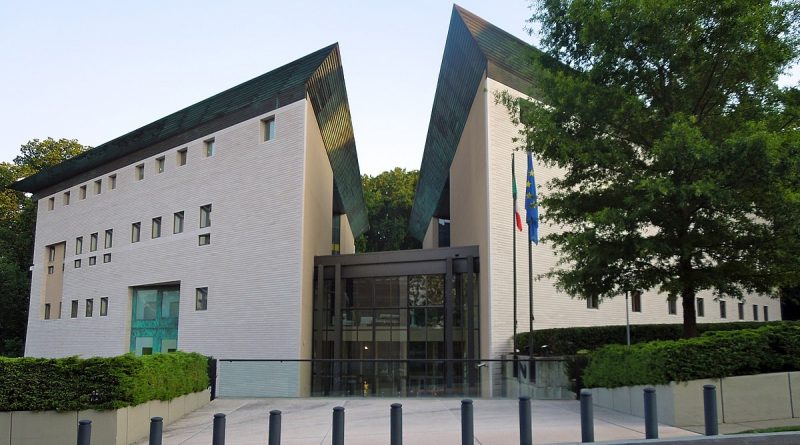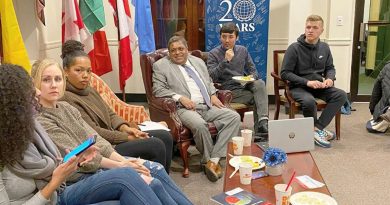Italian Embassy Hosts Webinar on Cultural Diplomacy
Ashley Skladany
Staff Writer
The Italian Embassy in Washington, D.C., and the Department of Communication Studies at Ben Gurion University co-hosted a webinar on March 3, titled “Crafting the Future of Cultural Diplomacy in the Digital Age.” The webinar was part of the Italian Embassy’s Digital Diplomacy Series and examined how digital technologies are transforming the practice of cultural diplomacy with cultural content. The panel consisted of experts in the field who explored the potential of the metaverse, avatars, and visual representations in digital and cultural diplomacy and how they can interfere with the way the Ministry of Foreign Affairs, cultural institutions, or embassies engage in cultural diplomacy.
Moderated by Ilaria Poggiolini, Professor of International History at the University of Pavia, the panel featured Corneliu Bjola, Associate Professor of Diplomatic Studies at the University of Oxford; Allegra Baistrocchi, Consul of Italy in Detroit; Franco Bevione, CEO of Wedoo LLC; and Ilan Manor, Senior Lecturer at the Department of Communications at Ben Gurion University.
The speakers discussed different viewpoints such as the scholarly, theoretical, and practical sides of diplomacy and the private sector. The presentation touched on the potential, risks, and challenges of using the metaverse for storytelling in cultural diplomacy. The metaverse was defined as a network of three-dimensional virtual worlds where users can experience different activities through their digital egos or avatars.
During the webinar, Baistrocchi highlighted the “Love IT Detroit” project, which uses cultural diplomacy to promote Italy in areas of the United States through design. The project includes a physical space in downtown Detroit and a metaverse. Both the Ministry of Foreign Affairs and the Embassy of Italy in Washington, D.C., support this program.
Baistrocchi stated that the project is under construction for a new metaverse that will be launched in September with a theme of sustainability. She intends to use these tools to change the narrative of Italy and start conversations about things that Italy is not known for, such as recycling and efficient use of resources.
Manor discussed how different digital environments are governed by certain logics and how digital cultural activities need to be tailored to the logic of the digital environment. Manor advocated for global cultural institutions to think globally and act locally, recognizing that different nations can accommodate different forms of digital technologies.
Bevione emphasized the potential benefits cultural diplomacy can have on the private sector, as well as the broader impact it can have on society. Bevione demonstrated a new tool that can be used to create avatars and enter a virtual world and highlighted the huge interest in this emerging technology among developers and content creators.
The webinar also addressed the digital revolution in cultural diplomacy, which has been brought on by the mass embrace of digital technologies by cultural institutions and accelerated by COVID-19. Cultural institutions have adopted a host of digital technologies ranging from virtual museums to AI-generated art and immersive exhibitions. These technologies offer new ways of reaching audiences and can be more cost-effective than offline activities.
The “Crafting the Future of Cultural Diplomacy in the Digital Age” webinar offered a valuable discussion on the potential of digital technologies for cultural diplomacy, highlighting the benefits and challenges of the metaverse and avatars. The speakers emphasized the importance of tailoring digital cultural activities to the digital environment and the potential for cultural diplomacy to have a significant impact on society as it aims to bridge connection between nations and promote interests of each country. The webinar provided insights that will be crucial as cultural institutions continue to navigate the ongoing digital revolution in cultural diplomacy.
Image courtesy of Robert Lyle Bolton, Wikimedia Commons


